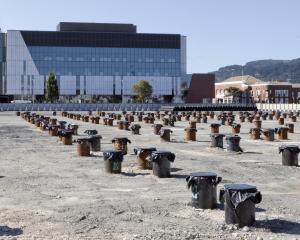
Research by the University of Otago found that when charities flagged at-risk children and young people to Oranga Tamariki they were sometimes met with delayed decisions or silence.
The study called for a "clearer consensus" about when cases indicating abuse or neglect should be reported to Oranga Tamariki. More frontline funding was also needed, for Oranga Tamariki and the charities caring for children and young people in the community.
Otago Youth Wellness Trust chief executive Claire Ramsay said the research "confirms our experience locally".
"We only make reports of concern as a last resort, as our priority is to keep rangatahi out of the statutory/state system. But more and more we are finding that they don’t reach the apparently high threshold Oranga Tamariki is working to.
"It is frustrating, and like others in the community sector, our funding does not reflect the work we are doing."
Methodist Mission Southern director Laura Black said a standards-driven approach would be "really useful" and stressed it must produce reliable results for children and young people across different cultures and backgrounds.
One Dunedin charity leader, who did not want to be named, confirmed it was increasingly supporting children with greater risk. In the past five years, cases that already had involvement from Oranga Tamariki had gone from "hardly any to around 40%".
The leader said that when charities filed a "report of concern" to Oranga Tamariki, the child agency was less likely to get involved than in the past if community agencies were already involved.
Otago University associate professor in social and community work Emily Keddell, the study’s lead author, said the current situation left children at risk and created anxiety among charity workers.
Charities were being tasked with helping families to stay together, she said, with the positive objective of fewer children in care, but charities needed appropriate resourcing to do this.
There was a "growing gap", Ms Keddell said, between families with risks considered by charities to be too complex for their services and the point at which Oranga Tamariki was prepared to get involved.
Acting Oranga Tamariki chief social worker Nicolette Dickson said children and young people and their families "deserve the best" and the agency was working to "change a system which has not always consistently provided this to them".
"It is no secret that our workforce is often dealing with large workloads and complex issues, which can, at times, impact how quickly we are able to respond. However, we will always seek to prioritise the safety and wellbeing of those children and young people who are at most risk."
Ms Dickson said the research helped the agency identify gaps that require improvement. This was a "key focus" of how the agency was working to strengthen relationships in the community, she said.
"We know that how we work alongside our community partners is vital to ensuring children and young people receive the support that they need.
"It is often our community partners who understand this best. It is disappointing to hear that some community organisations feel as though they have nowhere to turn. We encourage them to raise these concerns with us when this occurs."
Advertisement













